wikiHow is a “wiki,” similar to Wikipedia, which means that many of our articles are co-written by multiple authors. To create this article, 17 people, some anonymous, worked to edit and improve it over time.
There are 13 references cited in this article, which can be found at the bottom of the page.
wikiHow marks an article as reader-approved once it receives enough positive feedback. In this case, 90% of readers who voted found the article helpful, earning it our reader-approved status.
This article has been viewed 117,311 times.
Learn more...
Pubic lice, also known as crabs, are a non-threatening infection of parasites. Lice are small insects that live on hair follicles and are transmitted by direct physical contact. Though uncomfortable, treating pubic lice is easy and can be done at home.
Steps
Treating Pubic Lice
-
1Diagnose pubic lice correctly. Lice resemble small, moving crabs usually found around the genitals, though they sometimes be in armpits, eyebrows, or facial hair. If you cannot see whether you have pubic lice then use a magnifying glass – they are grey-brown, crab-like insects 5-7 millimeters long. Use a magnifying glass to check for lice if you have the following symptoms:[1]
- Pale blueish bite marks.
- Small, white dots attached to the base of your hairs (lice eggs).
- Low-grade fever.
-
2Buy an over-the-counter lice treatment. Lice shampoos, lotions, and insecticides are available at your local pharmacy. You should select a lice-killing lotion with 1% permethrin or a mousse that contains pyrethrins and piperonyl butoxide.[2]
- Perform a “spot test” to check for allergic reactions. Place a small amount of the lotion on your arm or leg and wait 10 minutes to check for itching or swelling.
Advertisement -
3Wash the infected area with soap and water. Clean your body the best you can and dry yourself off before applying medication. Do not try to scrub the lice away as they are evolved to hold to your hairs.
-
4Apply medication to the affected area. You should treat yourself and any people who have had close contact with you in the last week (sharing beds, sexual activity, borrowing towels, etc.). Apply the shampoo or lotion according to the directions on the bottle, which usually require you to apply the liquid and leave it for 20 minutes or more.
-
5Wash off the treatment after the appropriate time. All creams need time to work, but do not be tempted to leave them on for longer than recommended. These products are poisons and they will damage your skin if not washed away properly.[3]
-
6Pick out any remaining eggs. Most lice treatments do not kill eggs (known as “nits”), so you will need to remove them by hand. Using tweezers or an fine-toothed nit-comb, carefully pull out any small white eggs or remaining bugs.[4]
-
7Repeat the treatment 7-10 days later. To be safe, you should always retreat yourself to make sure no lice survived. Lice eggs hatch after 10 days, so repeating the treatment ensures that none survived the first round.[5]
-
8Know that shaving alone will not eliminate pubic lice. ’"Pediculosis Pubis," or pubic lice, are resilient creatures that can live on other parts of your body, including your armpits and eyelashes. Shaving will not get rid of the problem, but it can help in conjunction with lice-treatments.[6]
-
9Use a prescription medication if pubic lice return. There are several prescription options available for treating pubic lice, but they should be used as a last resort. Stronger creams are more toxic and can cause illness or skin damage in large doses.
- ’’’Lindane Shampoo:’’’ Kills lice and eggs, and is available by prescription. It can be toxic, however, and should be used only when other options fail. Never use lindane on small children, people with a history of seizures, the elderly, or pregnant women.[7]
- ’’’Malathion Lotion:’’’ Known by the brand name “Ovid,” this is another prescription method that has had success with stronger cases of lice. It has not, however, been approved by the U.S. Food and Drug Administration.[8]
-
10See a doctor if lice persist or don’t respond to treatment. If you can’t get rid of your pubic lice after two rounds of treatment you should see a health professional. They may write you a prescription or send you to a specialist if they problem is not treated quickly.[9]
- If you develop any redness, pain, or swelling, you should talk to your doctor about a possible infection.
Home Remedies for Pubic Lice
-
1Know that most home remedies are ineffective at removing lice. While there are steps you can take to remove lice at home, most medical professionals at the CDC and National Health Service believe that medication is the only way to truly remove lice. That said, the following steps can control lice and relieve itching.
-
2Comb out pubic hair with a fine toothed comb. A specialized nit-comb, bought at any pharmacy, is made to remove lice. Comb your hair, starting at the base of the hair and combing all the way up, to physically remove lice.[10]
-
3Apply petroleum jelly 2-3 times a day. Petroleum Jelly (Vaseline) can prevent lice from gripping your hair and make it easier to comb out. The jelly smothers the bugs, suffocating them. After applying the jelly, use a fine-toothed comb to try to remove the lice.[11]
- Make sure the jelly covers the hair from the base to the tip.
-
4Use calamine lotion for itch relief. Calamine may also help smother lice, killing them when it dries. More importantly, calamine relieves itching, which may prevent you from scratching your skin and creating an infection.[12]
- Apply the lotion 2-3 times a day.
Preventing Reinfestation
-
1Immediately wash all bedding, clothes and towels used in the last two days. You want to use hot water and dry the clothes for at least 20 minutes on high. Borax detergent has also been found to kill lice in bedding and towels.[13]
-
2Store unwashable items in air-tight containers for two weeks. If you cannot wash something, like a stuffed animal or fragile clothing, seal it in an air-tight bag for at least 72 hours to suffocate the lice.[14]
-
3Treat other people close to you in advance. If you share a bed with someone or have had a sexual partner in the last few weeks, have them apply lice treatment now to prevent an infection later.[15]
-
4Inform any recent sexual partners that you have pubic lice. This may be difficult, but you need to let people know about your situation so they can treat themselves and prevent spreading the disease. Avoid future sexual contact until you have completely treated the problem.
-
5Know that lice cannot survive without a human host for more than 2 days. You do not need to throw out all of your furniture, burn your blankets, and buy a new wardrobe. Pubic lice will die without a human host after 48 hours, so if you contain the infected people, wash all the bedding, and follow treatment directions you can prevent an outbreak of pubic lice with ease.[16]
Treating Eyelashes and Young Children
-
1Know that pubic lice can live on eyelashes, especially in young children. Though uncommon, pubic lice have been known to survive on smaller children by clinging to their eyelashes. This usually occurs when children share a bed with parents or siblings who have contracted pubic lice.[17]
- Be aware that pubic lice on young children can be a sign of sexual abuse.
-
2Pull off any visible lice with fingernails or tweezers. Usually there are only a few lice on eyebrows or eyelashes, and they can be removed by plucking and flushing them down the toilet. Make sure you get everything to prevent reinfestation.[18]
- Lice are small, grey-brown insects that resemble crabs.
- The eggs, or nits, are small white dots usually found at the base of the hair.
-
3Treat persistent cases with petrolatum jelly. Apply the jelly around the edges of the eyes 2-4 times a day. Be sure to get ophthalmic-grade petrolatum ointment, which is available by prescription, as Vaseline can cause eye irritation.[19]
-
4Never use lotions, shampoos, or toxic creams near the eyes. These creams can cause permanent eye damage, and should never be used for cases along the eyes or eyelashes. Similarly, do not use creams for children unless directed by a doctor.
Warnings
- Always use medication according to the directions on the box, as it is potentially dangerous in large doses.⧼thumbs_response⧽
References
- ↑ https://www.plannedparenthood.org/learn/stds-hiv-safer-sex/pubic-lice/what-are-symptoms-pubic-lice-crabs
- ↑ https://www.cdc.gov/parasites/lice/pubic/treatment.html
- ↑ http://www.nhs.uk/Conditions/pubic-lice/Pages/Treatmentpg.aspx
- ↑ https://www.plannedparenthood.org/learn/stds-hiv-safer-sex/pubic-lice/how-do-i-treat-pubic-lice
- ↑ http://www.cdc.gov/parasites/lice/pubic/gen_info/faqs.html
- ↑ http://www.pamf.org/teen/health/skin/pubichairremoval.html
- ↑ https://www.cdc.gov/parasites/lice/pubic/treatment.html
- ↑ http://www.cdc.gov/parasites/lice/pubic/gen_info/faqs.html
- ↑ https://my.clevelandclinic.org/health/diseases/4522-pubic-lice-crabs
- ↑ https://my.clevelandclinic.org/health/diseases/4522-pubic-lice-crabs
- ↑ https://www.healthlinkbc.ca/healthlinkbc-files/pubic-lice
- ↑ https://myhealth.alberta.ca/Health/aftercareinformation/pages/conditions.aspx?hwid=abr9617
- ↑ https://www.plannedparenthood.org/learn/stds-hiv-safer-sex/pubic-lice/how-can-i-prevent-getting-or-spreading-pubic-lice
- ↑ https://www.cdc.gov/parasites/lice/pubic/prevent.html
- ↑ https://www.cdc.gov/parasites/lice/pubic/prevent.html
- ↑ http://www.cdc.gov/parasites/lice/pubic/gen_info/faqs.html
- ↑ https://www.cdc.gov/parasites/lice/pubic/gen_info/faqs.html
- ↑ https://www.uptodate.com/contents/pubic-lice-beyond-the-basics
- ↑ https://www.uptodate.com/contents/pubic-lice-beyond-the-basics
About This Article
To get rid of pubic lice, start by cleaning the affected area and applying an over-the-counter lice treatment that contains 1% permethrin, which is the active ingredient. Next, wash off the treatment after the instructed amount of time and pick out any remaining eggs using tweezers or a fine-toothed nit-comb. To make sure no lice survived, you should repeat the same treatment 7-10 days later. If you can’t get rid of the lice after 2 rounds of treatment, see your doctor about getting a prescription medication. For tips on preventing washing bedding and taking other steps to prevent reinfestation, read on!
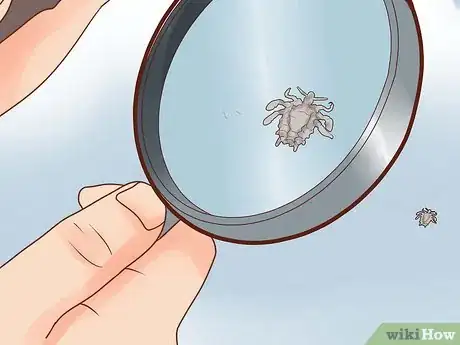
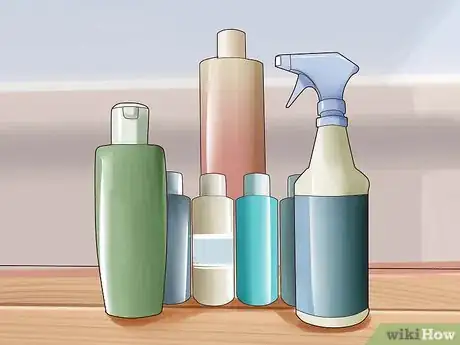
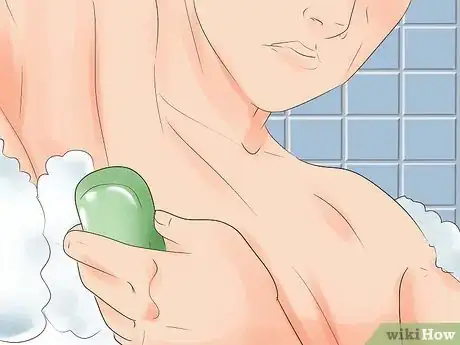
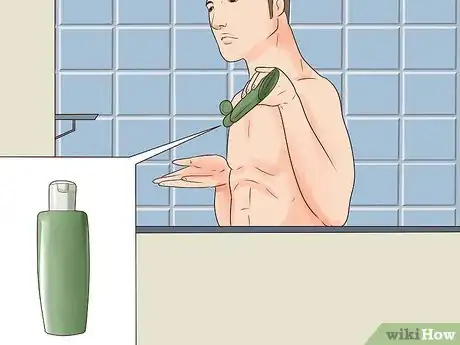
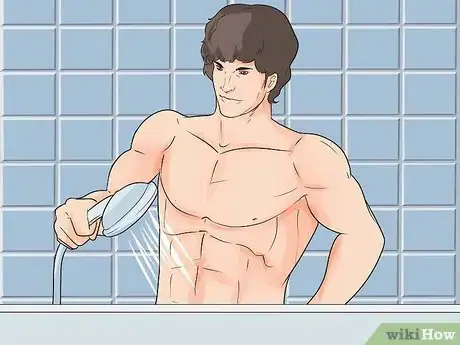
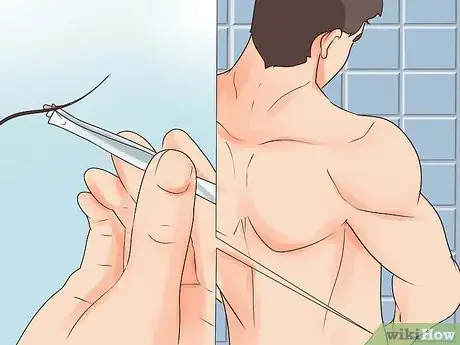
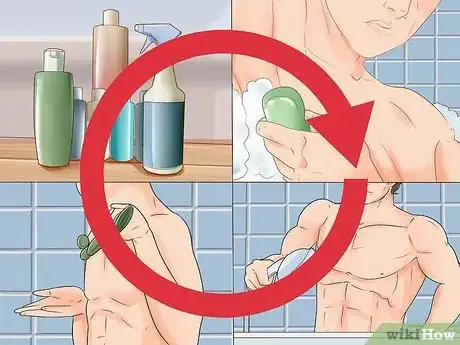
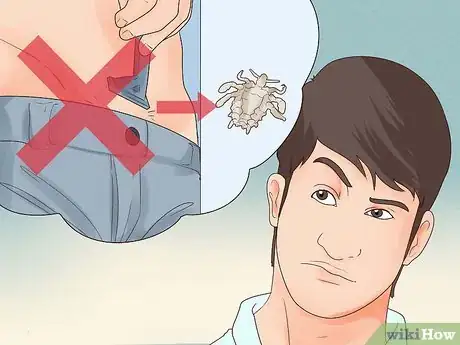

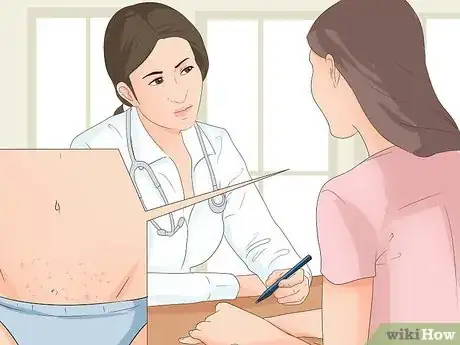
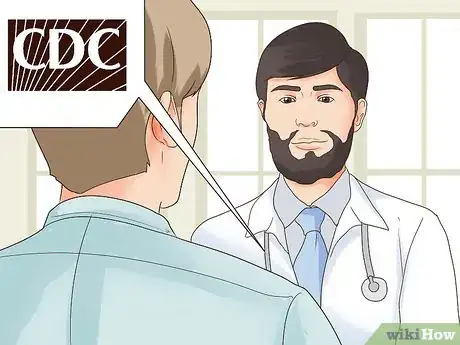
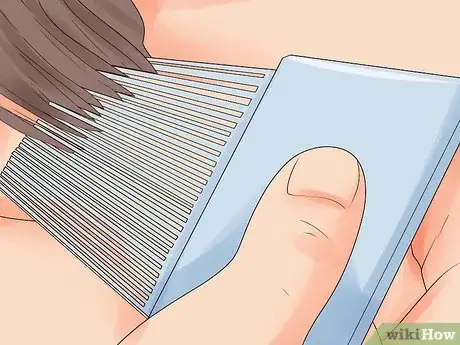
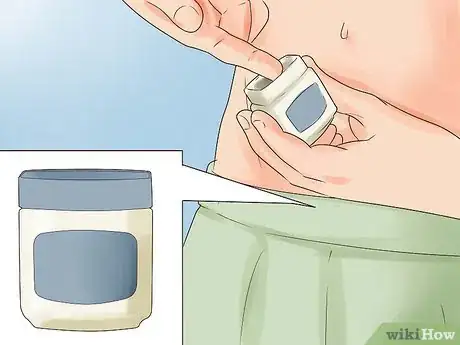
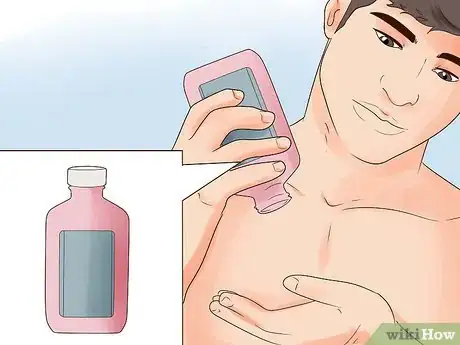
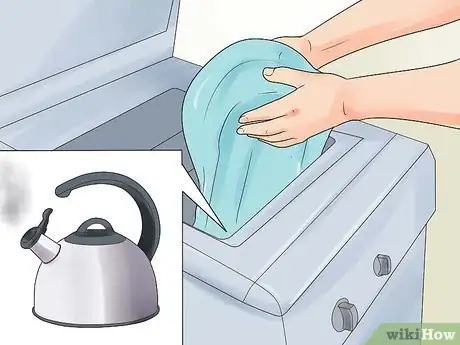
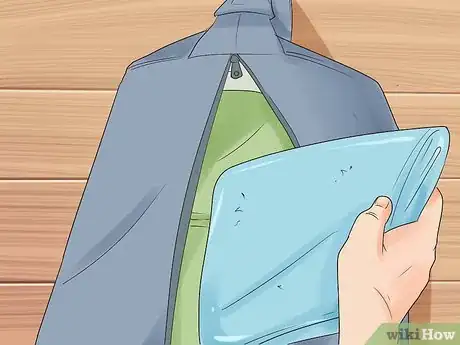
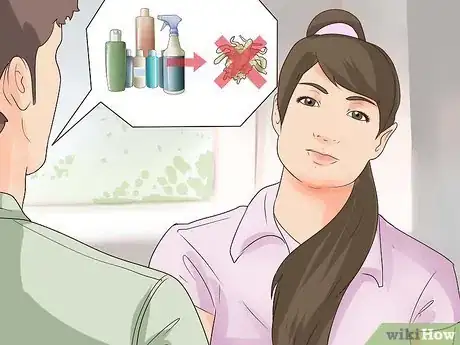
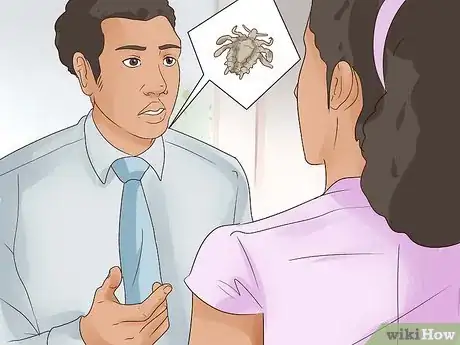
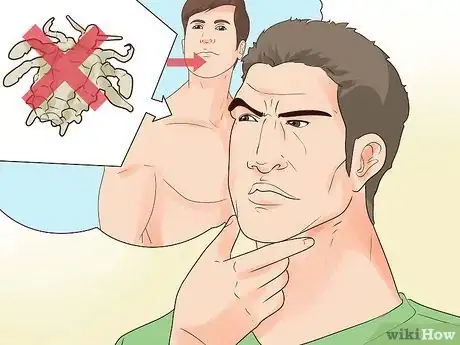
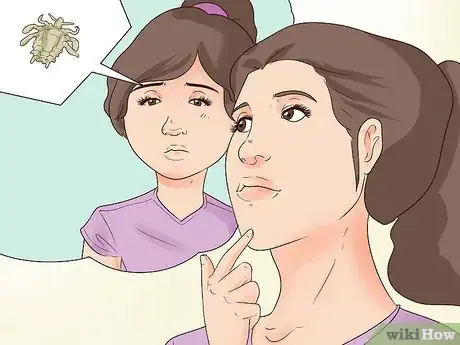
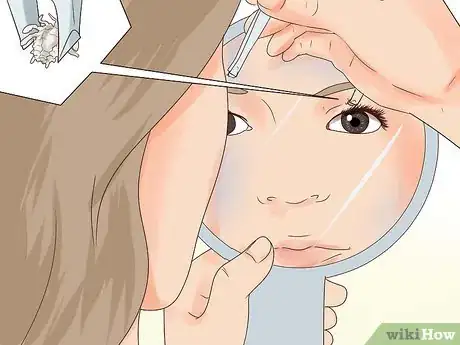
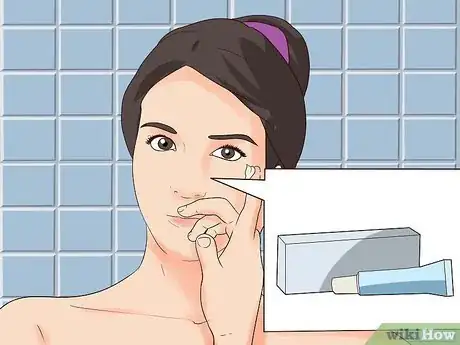
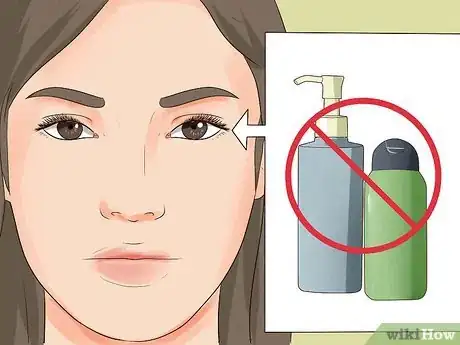

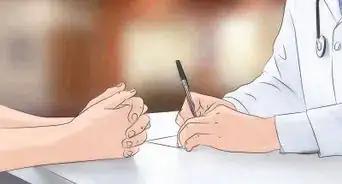
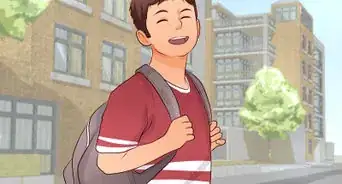
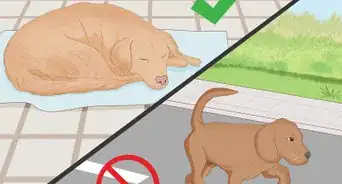
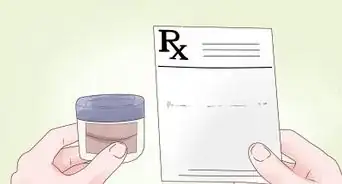
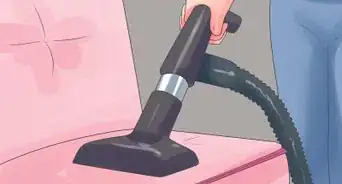
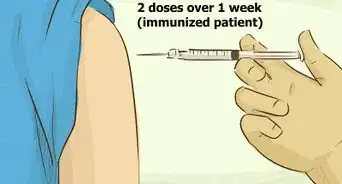
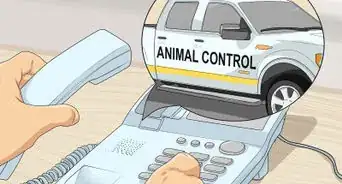
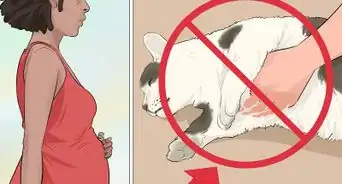
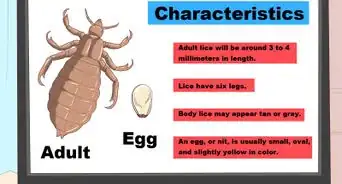

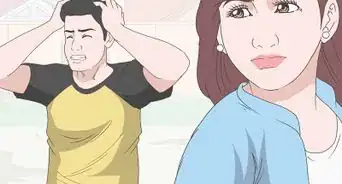
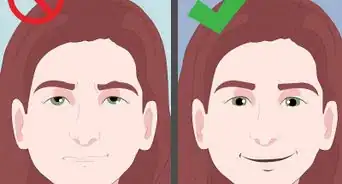
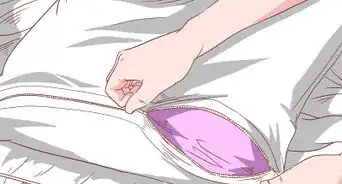








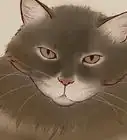
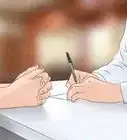
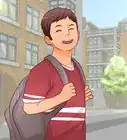
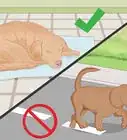




































Medical Disclaimer
The content of this article is not intended to be a substitute for professional medical advice, examination, diagnosis, or treatment. You should always contact your doctor or other qualified healthcare professional before starting, changing, or stopping any kind of health treatment.
Read More...